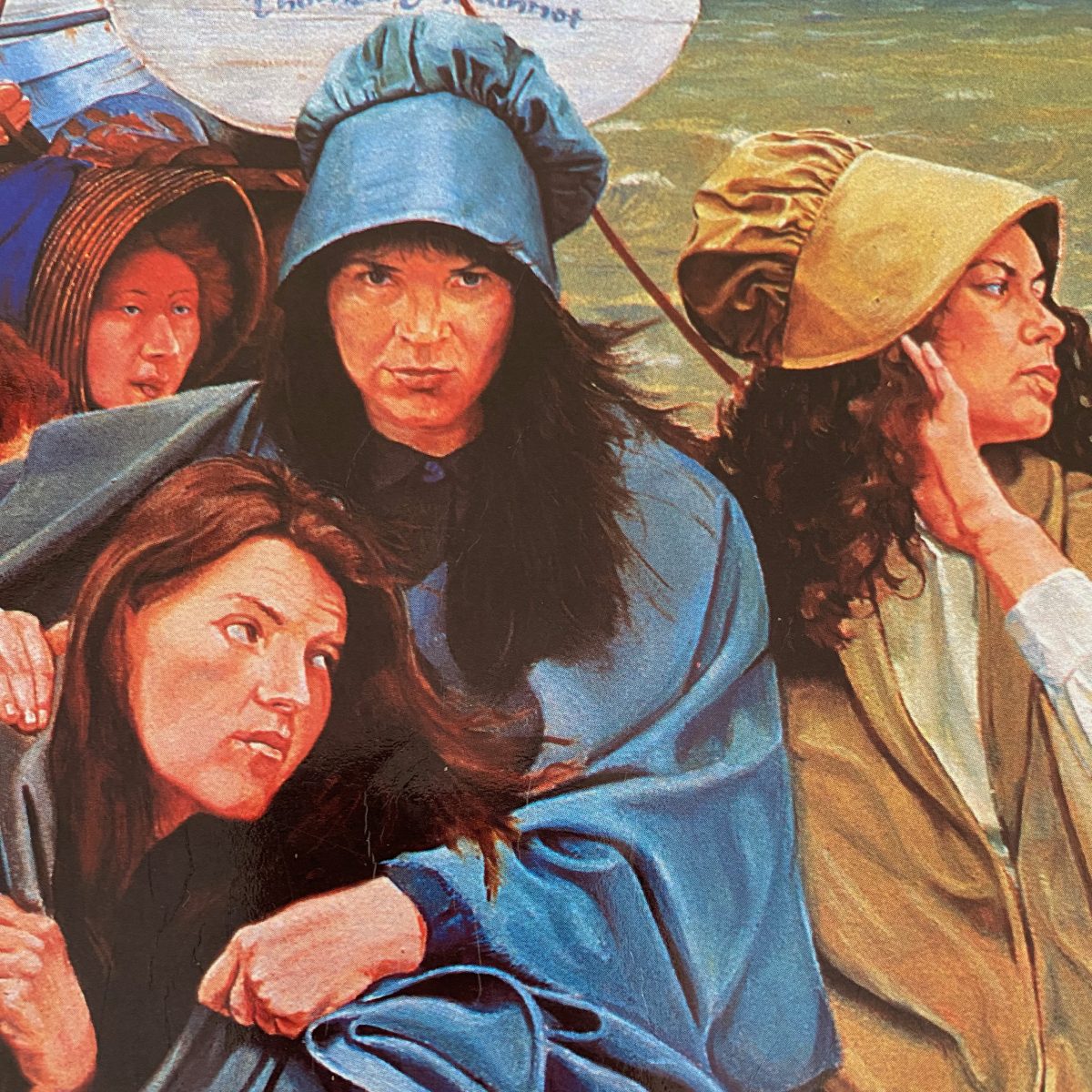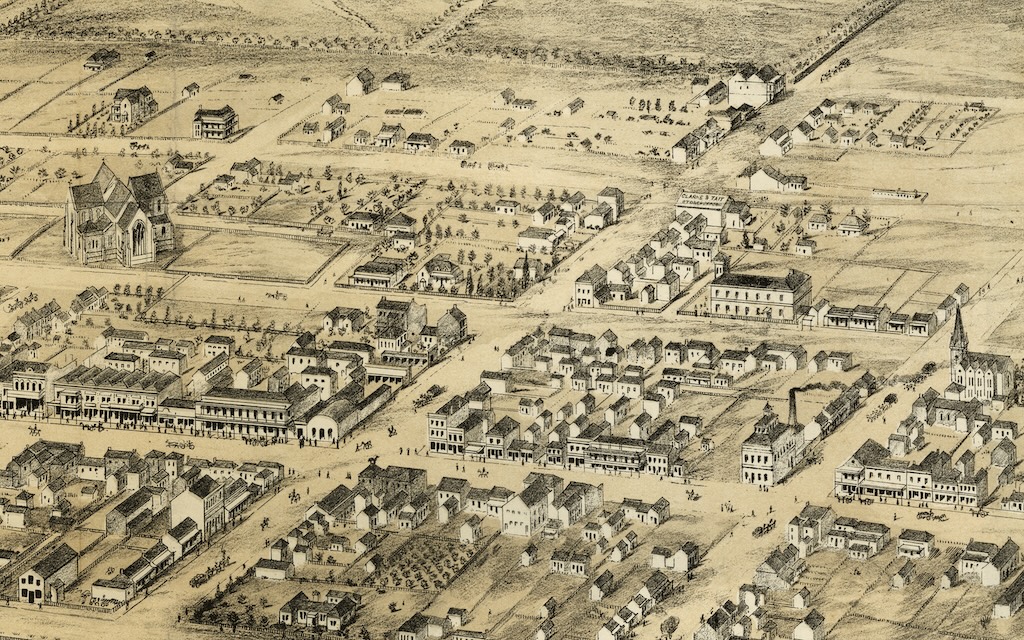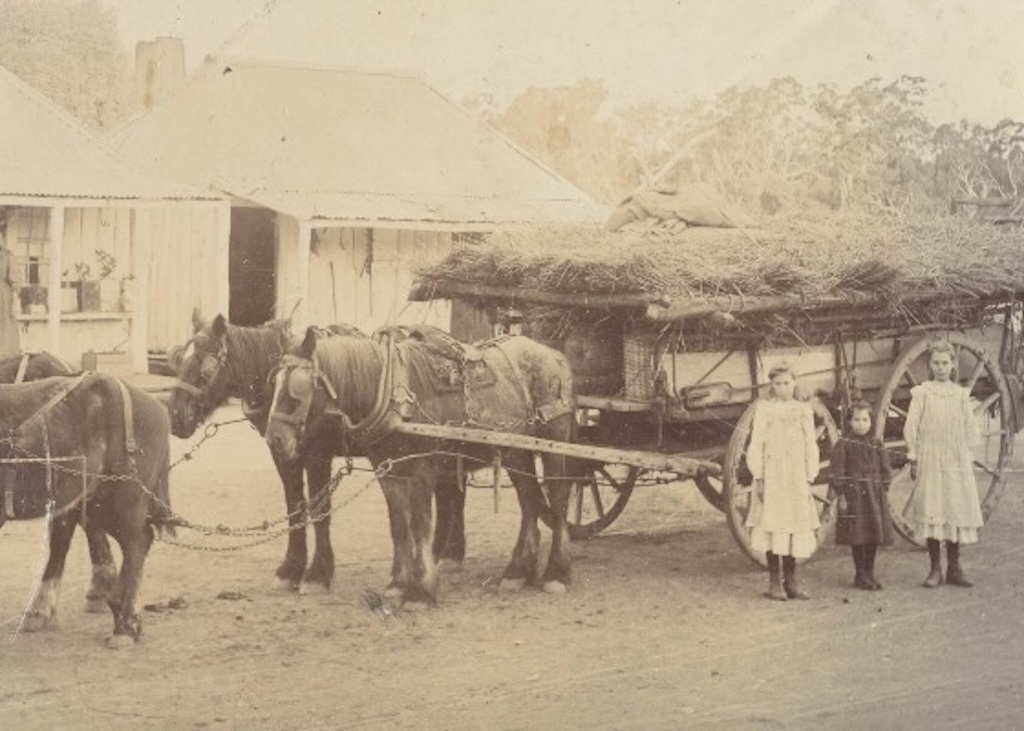
This painting of young Irish women bound for Australia is by Yass artist Kim Nelson, now deceased. It was for the cover of A Decent Set of Girls, written by Yass historian Cheryl Mongan and Richard Reid. The book gives many insights into the passage to Australia, and subsequently to Goulburn and district as well. Photo: John Thistleton.
Orphaned by the horrendous Irish potato famine, and with little more than a dress, bonnet and box for their meagre possessions, girls as young as 14 set off by sea to Australia, many of them to Goulburn, to rebuild their lives.
Their stories surfaced 175 years later when Goulburn Mulwaree Library hosted Museums of History NSW’s presentation “Wages Paid to Irish Orphans”. Among the sold-out audience were descendants of Irish orphans, who swapped information with one another.
The orphans’ stories were gleaned from ship records, newspapers and records of miserly wages paid to the girls.
From mainly Irish Catholic farming families, the girls aged from 14 to 20 had not lost their parents, but were called orphans because their parents could not look after them. Consequently, they had ended up in workhouses in a country reeling from starvation.
Aboard ships with other assisted immigrants, enduring roiling seas and seasickness, 4100 girls were schooled en route for new roles as domestic servants in a country foreign to them, according to Museums of History’s Fiona Sullivan.
“You can only imagine how daunting the journey would have been travelling so far away from their family and friends and they were very much young girls on their own,” Fiona, the acting director of collections at the museum, said.
Newspapers carried bigoted letters to the editor about the orphans, and such was the outcry of the scheme it was terminated two years after it began.
Arriving in Australia, the orphans stayed at former convict barracks in Sydney before being sent to Goulburn, Yass, Maitland and Morton Bay, or assigned to work in the port city.
Those coming to Goulburn included Mary Fahey, Mary Green, Maria Quinn and Catherine Scott, who awaited their assigned employers at an immigration depot in Clifford Street, which the government rented from Joseph Bull.
Opening in 1848 and closing in 1853, the depot was run by John Francis McArthur. McArthur’s niece, an Irish orphan, was among a group of more than 100 other orphans who continued on to Yass, according to historian Cheryl Mongan, co-author with Richard Reid of A Decent Set of Girls – The Irish Famine Orphans of the Thomas Arbuthnot 1849-1850.

A lithograph showing a bird’s-eye view of Goulburn in 1882, which presents the historic city that Irish girls encountered earlier, from 1849 to 1850. Clifford Street dissects from top to bottom of the illustration, with St Saviour’s Cathedral at left. Near the top of Clifford Street, on the left, an immigration depot for assisted immigrants and Irish orphans was established. Illustration: History Goulburn.
“They faced a mixed reception when they arrived,” Fiona said. “Essentially, most of the girls were Irish Roman Catholic, which at the time in an English Presbyterian colony made them an ethnic minority, so they faced prejudice in that regard, also because of their workhouse background.”
For one Goulburn family, the short-lived scheme had a silver lining. Edward Naughton, who had been convicted of ‘’Whiteboyism’’ – organised groups of farmers taking action against English landholders – had earned his ticket of leave working for Charles Cowper in Goulburn. Yearning for his long-lost family, he applied to the government to provide transportation to Australia for his wife and four children, Anthony, Mary, Catherine and Bridget.
Several years passed before two of his daughters, Mary and Catherine, came out under the Irish orphans scheme and were reunited with their father.
Mary married William Archer in 1850 and Catherine married John Broderick in 1852. In 1853, Catherine’s husband deposited money to the government to bring other family members to Australia, including Bridget and Anthony.
“Bridget arrived in 1854 to be reunited. This would have been the first time she would be seeing her father in person,” Fiona said.
Anthony, who would have been 29, didn’t come. Catherine died in 1901, aged 73, in Crookwell, leaving behind a husband, two sons and five daughters. Having moved around the state, Mary died at Wagga eight years later and left behind a large family.
“Extraordinary to think of a family separated for so long and reunited in a colony so far away,” Fiona said. “That’s what’s so wonderful about the State Archives: there are so many wonderful stories, it’s just knowing where to look.”

Life in the Goulburn district in the late 1880s can be imagined from this photo from the Kelly family, showing three girls almost dwarfed by the wheels of a large wagon. Photo: Goulburn Mulwaree Library.
The Museums of History thanked local studies officer Fran O’Flynn and her colleagues at Goulburn Mulwaree Library for hosting and promoting the presentation.
If you are a descendant of any Irish orphans and would like to add to their story, please email [email protected].







